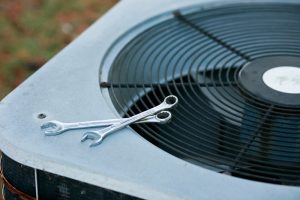 Nobody likes a leak. From pipes, to drains, to toilets, leaks can spell disaster for a homeowner. An air conditioner is no exception. Water leaking from an AC can mean warped floorboards, mold, and a slew of other problems. If you’re noticing any water leaks coming from your air conditioner, it’s not a bad idea to contact a technician for fast air conditioning service in Clifton, NJ.
Nobody likes a leak. From pipes, to drains, to toilets, leaks can spell disaster for a homeowner. An air conditioner is no exception. Water leaking from an AC can mean warped floorboards, mold, and a slew of other problems. If you’re noticing any water leaks coming from your air conditioner, it’s not a bad idea to contact a technician for fast air conditioning service in Clifton, NJ.
What if I told you that some signs of leaks weren’t actually as bad as you think?
That’s right! Did you know that your AC is supposed to disperse water into a condensate drain? Often, homeowners hear a dripping noise coming from their AC, which is really a sign that it’s functioning perfectly fine.
Let’s take a look and see how you can spot the difference between a good water leak and a bad one.
Why Your AC Leaks
Evaporation and condensation are part of the cooling process. Did you know that most of the discomfort we feel from the summer heat is from the humidity? When the air is moist, our sweat has trouble evaporating, which leaves us feeling sticky and uncomfortable. Luckily enough, your air conditioner serves as a partial dehumidifier, since it draws moisture out of the air through evaporation.
All that moisture must go somewhere though. As it condenses around your AC unit, it drips into a pan and eventually empties through a condensate drain outside. So that dripping noise? Yep, perfectly normal!
The Wrong Leaks
What happens if condensate can’t drain properly? Over time, your condensate drain could plug up with dirt and debris, causing your system to have trouble venting this excess moisture. If this happens, you might see signs of water being in places that you’d rather it not be.
- Discolored Walls. Are you noticing brown or beige spots on your wall near your air conditioner? This could be from leaking moisture that can’t make it through the condensate drain.
- Discolored Carpet. AC leaks affect your carpet easily. If you’re noticing discolored spots on your carpet right near your air conditioner, this could be the sign of a leak.
- Warped Wood. Don’t have a carpet? Leaking condensate could still affect your hardwood floor. Wood can soak up moisture and bend or warp out of place.
- Mold or Mildew Smells. Yikes! All that moisture in a cool, interior environment is a ripe breeding ground for mold. If you smell or spot mold near your AC unit, there could be a condensate leak.
These are not symptoms of a well-functioning air conditioning system. If you notice any of these signs, you might have a pretty bad problem on your hands.
How to Tell if You Have a Condensation Leak
If you take a metal wire and pass it through your unit’s drain channels, you’ll be able to tell the condition of your AC’s drainage pipe. If you receive a great amount of resistance, or can’t pass the wire through at all, then your condensation drain is most likely plugged and requires some repair.
When in doubt, call us at MarGo Plumbing Heating Cooling Inc.
